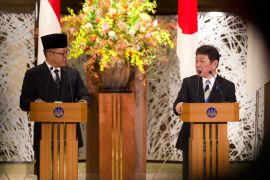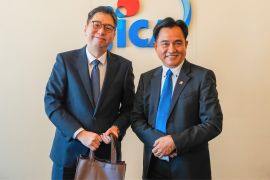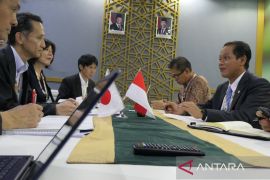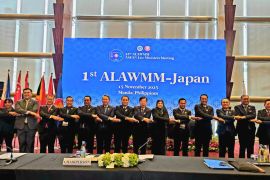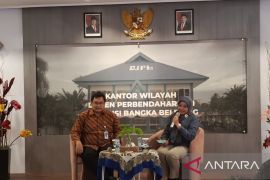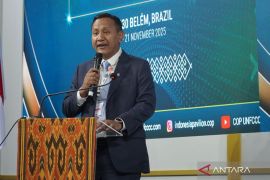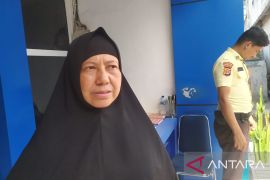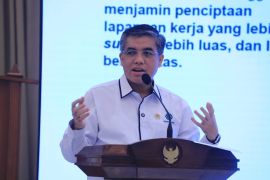"The presence of the investor is expected to make the kesambi seed have economic value and continue to push up market prices," Esthon Foenay saidKupang, East Nusa Tenggara (ANTARA News) - Bec Japan, a Japanese investor, wants to invest in kesambi oil (Schleichera oleosa) in East Nusa Tenggara province, Vice Governor Esthon Foenay said here Tuesday.
The investment plan was conveyed by President Commissioner of Bec Japan, Hiroyuki Hanzawa, along with his partners, Director of the Bogor Agro Lestari (BAL), Sarwo Budi, and Indonesian Institute of Sciences (LIPI) researcher, Dr.Joko Sulistio, at a meeting with the East Nusa Tenggara Vice Governor here Tuesday.
The vice governor said the provincial administration welcomed the presence of the investor and asked his seriousness as the investment was expected to benefit local people.
During this time, kesambi seed has no economic value at all.
"The presence of the investor is expected to make the kesambi seed have economic value and continue to push up market prices," he added.
The director of Bogor Agro Lestari (BAL), Sarwo Budi, explained, a LIPI research showed that kesambi in East Nusa Tenggara has the potential to be developed as bio-diesel.
According to data collected by LIPI, there are approximately 24 million kesambi trees in East Nusa Tenggara. One tree produces 10 kilograms of wet kusambi seed, he said adding that four to five kilograms of dry kesambi seed could produce one liter of bio-diesel oil.
"The LIPI research shows it is very potential and we are looking for investors who can be our partners. We found Bec Japan which is ready with an investment of approximately 50 billion rupiahs. We will start this year and it will take place for 20 to 30 years," Budi said.
He added the investment plan conforms to the cooperation agreement between PT BAL and the Trade and Industry Office representing the East Nusa Tenggara administration.
The cooperation agreement will be followed by the implementation of a bio-diesel processing project with kesambi seed as raw material.
LIPI researcher Joko Sulistio explained that the research done by LIPI indicated that the kesambi population is sufficient for bio-diesel development.
The population spreads in Alor, Rote Ndao and Kupang districts, especially at Semau, Belu and Sumba islands.
If the kesambi oil processing project has run well, then the population of kusambi should be expanded with new plantings.
(T.KR-LWA/HAJM/A014/P003)
Editor: Priyambodo RH
Copyright © ANTARA 2011
